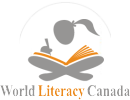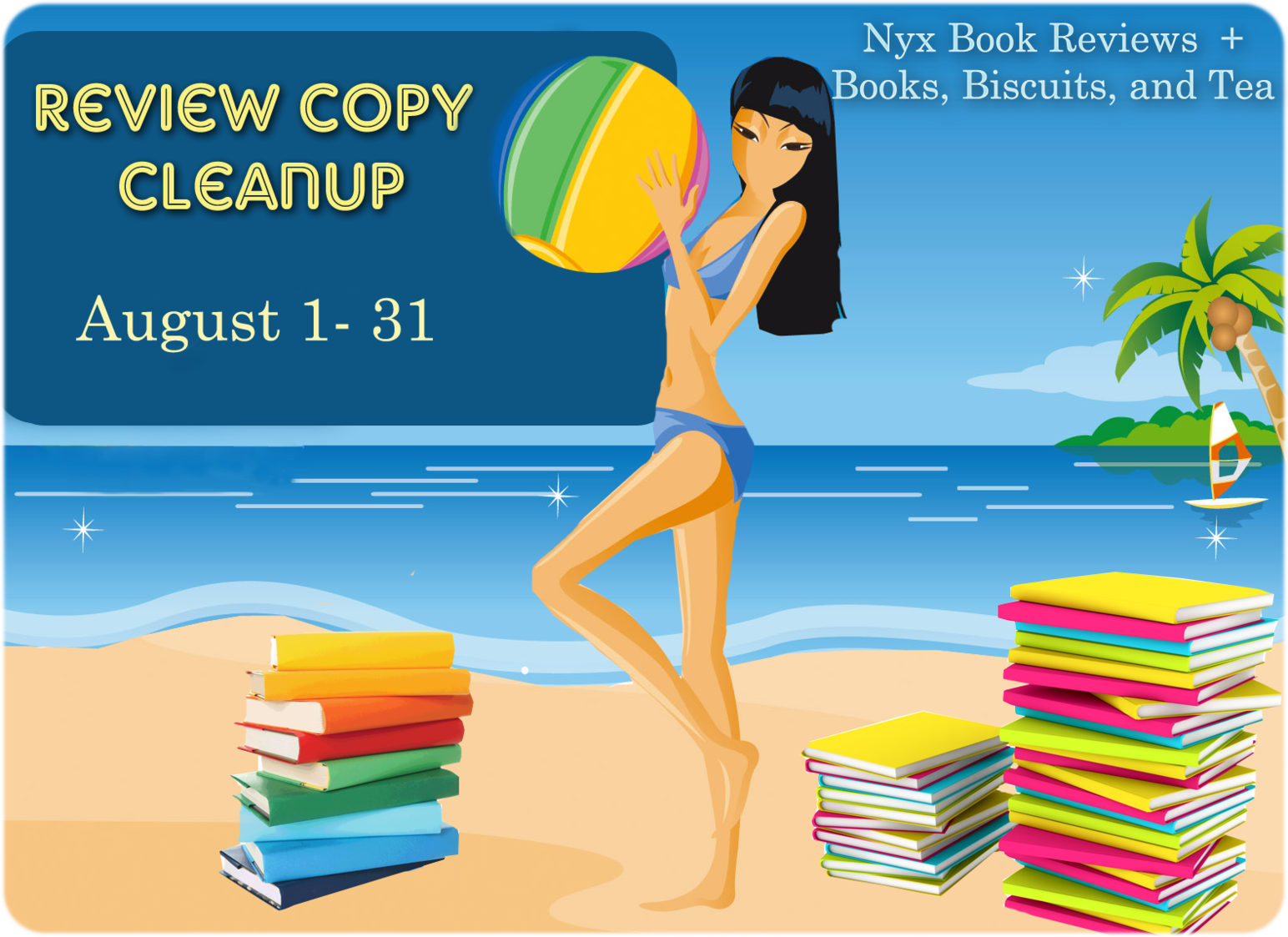
August 2nd, 2012
Review Copy Cleanup
I’ve just looked at my review copy pile and realized just how many copies I’ve left to review. I told myself that I’d clean up my pile by the time the school year rolls around, but, well, things happen. Let’s look at the titles, shall we?
–Have Book–Will Travel by Kfir Luzatto
–Hurricane by Jenna-Lynne Duncan
–Poltergeeks by Sean Cummings
–The Assasin’s Curse by Cassandra Rose Clark
–The Earthquake Machine by Mary Pauline Lowry
–The Vampire Underground by Brian Rowe
–Torn by Ashley S. Morgan
–Guardians: The Girl by Lola St.Vil
–Crystal Shade: Angeni by Istvan and Orlando Szabo
–Protostar by Braxton Cosby
–Pearl Lover by Kea Noli
–Ruby by Amanda Burke
Is it big pile? Yes. Can I clean it up? Maybe. We shall see, fellow readers. We shall see.
PS: To sign up for the Review Copy Cleanup, click here.
I’ll keep you posted,
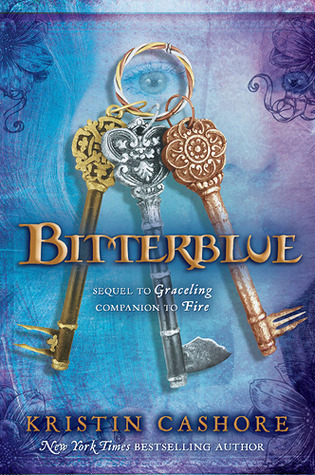
Ana's Rating
Readers Rating
Eight years after Graceling, Bitterblue is now queen of Monsea. But the influence of her father, a violent psychopath with mind-altering abilities, lives on. Her advisors, who have run things since Leck died, believe in a forward-thinking plan: Pardon all who committed terrible acts under Leck’s reign, and forget anything bad ever happened. But when Bitterblue begins sneaking outside the castle—disguised and alone—to walk the streets of her own city, she starts realizing that the kingdom has been under the thirty-five-year spell of a madman, and the only way to move forward is to revisit the past.
Two thieves, who only steal what has already been stolen, change her life forever. They hold a key to the truth of Leck’s reign. And one of them, with an extreme skill called a Grace that he hasn’t yet identified, holds a key to her heart.
I’m going to begin this review by stating that I am in general disagreement with most reviewers out there when it comes to Bitterblue. I love this book, and despite (or perhaps in spite) of all of its negative reviews, I’m going to sing praise here. You’ve been warned.
As this is the third book in the Graceling Realm series, I think that we’ve already established that this world building is really freaking amazing. What with the kingdoms, the castles, the bridges, the Gracelings… I’m really starting to wonder why I don’t read more fantasy. Contemporary reads hold no competition when it comes to this element.
I really love Bitterblue as a character. Contrary to Miss Cashore’s other protagonists, Bitterblue has no super powers. She’s not graced with fighting, or with survival. Her hair does not captivate and dumbfound those around her. No, she’s just a normal girl– who happens to be a queen. It is for this reason, I believe, that I find Bitterblue so easy to relate to. She made me laugh, she made me cry, she made me try exciting new hairstyles involving a headful of braids… just see for yourself.
“I hear that you’re supposed to be good at manipulating people. Try a little harder to make me like you, all right? I’m the queen. Your life will be nicer if I like you.
“I threw a few chickens around before I came up the ladder,” he said. “You didn’t hear them making a racket?”
“I was distracted by the conviction that I was going to die.”
If a situation presented itself in which the right and the wrong seemed clear to her, then she was going to grab on tight. The world presented too few anchors for her to let one pass.
Bitterblue isn’t the only character who I enjoyed. Cashore’s recurring cast, involving Po, Skye, Giddon, Katsa, Raffin and Bann, was absolutely delightful. It was strange—in a wonderful type-way—to see them as a bunch of almost-30-year-olds, but I was terribly happy to see them regardless.
As for Bitterblue‘s romantic scene, I agree that it’s not exactly… prevalent. Bitterblue and Saf’s relationship, though crucial to the novel’s plot, never takes precedence over other subplots and does not develop in the ways that Graceling‘s and Fire‘s romances so obviously did. However, as Kristin Cashore has pointed out herself, this is due to the simple fact that Bitterblue is the queen of Monsea. She’s struggling to find solid ground in a kingdom whose most recent past has been submerged in a sea of lies and battling to forge a relationship with her people, whom she’s discovering she doesn’t know in the least. And let’s not forget that, as queen, Bitterblue will be expected to marry nobility and produce heirs sometime in the near future. That’s a lot of pressure to put on a teenage girl; if boy craze were at the forefront of Bitterblue’s mind, I’d
have been worried.
Furthermore, others have blatantly suggested that Bitterblue, at 547 pages (hardcover edition), is exorbitantly long and unbearably boring. Apparently, its subplots are too unruly and its mystery is too hard to follow, and so the whole novel becomes an unreadable mess. To say that I am in disagreement with this supposition is too weak; I’ve been glued to this book for the past three days. Literally. My family and I went out to dinner yesterday, and I read Bitterblue under the table until my grandmother tsked a warning and then, after a few minutes, yelled at me. I guess that indulging oneself in riveting novels is rude. In any case, even at 547 pages, I was sad to see Bitterblue end.
Because, the truth is, this ending was very unsatisfactory. So many loose ends were left untied, and my mind is filled with questions. What will become of Saf and Bitterblue’s extremely unclear relationship? What about the Council—will it succeed in its work? And that land to the east—what of its relationship with Monsea and the rest of the known world?
Honestly, what is with Kristin Cashore and her non-endings? The number 1 problem with each of her books is their major
cliffhanger finales. The least she can do at this point is grace us with another Graceling Realm book. No, seriously. I’m not kidding. I need another Graceling Realm book. Soon.
Bitterblue merits 4.8/5 stars. For fans of majorly awesome world building, a riveting plot, and ungraceful final outcomes.
I’ll keep you posted,
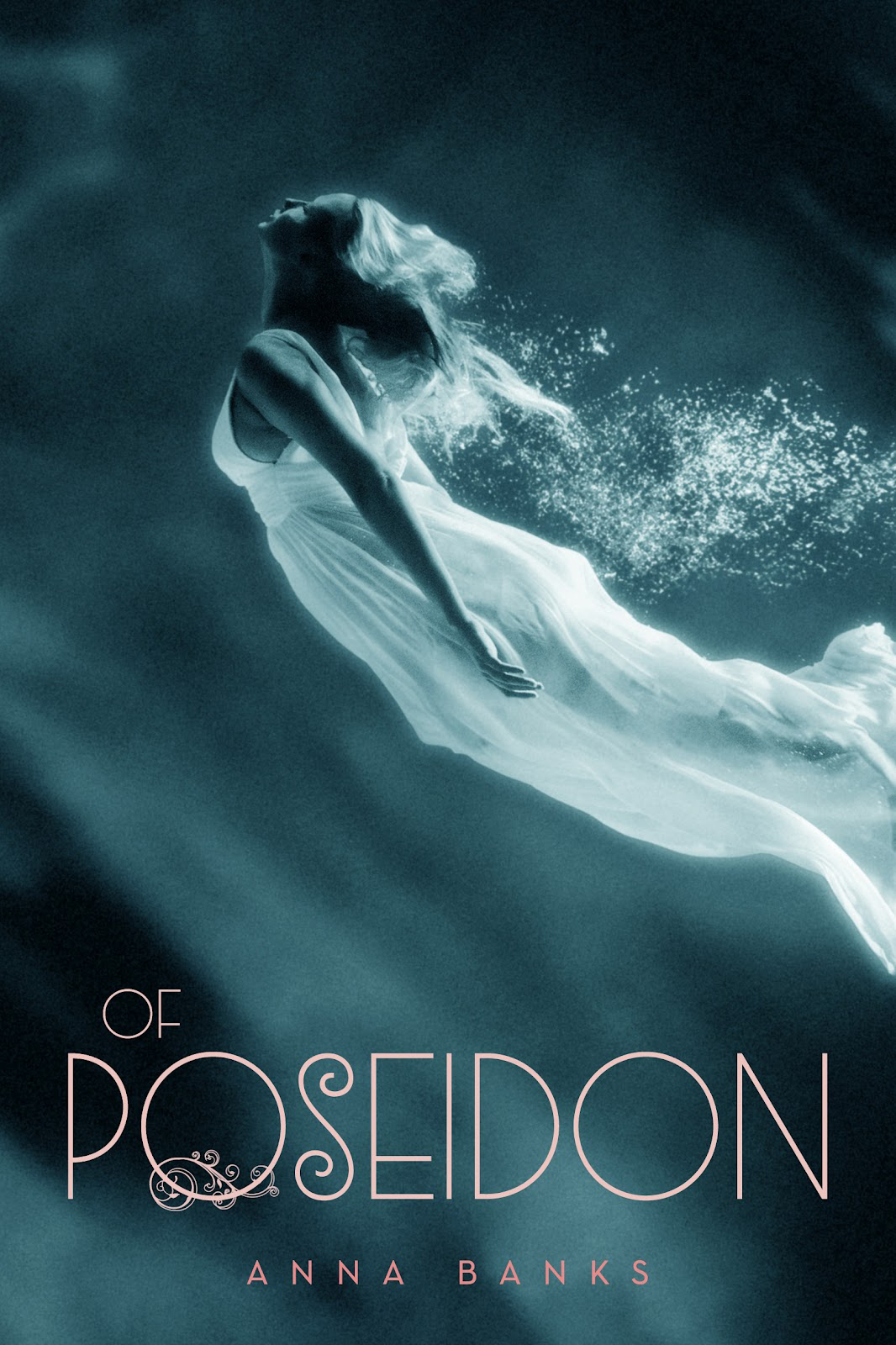
Ana's Rating
Readers Rating
Galen is the prince of the Syrena, sent to land to find a girl he’s heard can communicate with fish. Emma is on vacation at the beach. When she runs into Galen — literally, ouch! — both teens sense a connection. But it will take several encounters, including a deadly one with a shark, for Galen to be convinced of Emma’s gifts. Now, if he can only convince Emma that she holds the key to his kingdom . . .
Told from both Emma and Galen’s points of view, here is a fish-out-of-water story that sparkles with intrigue, humor, and waves of romance.
Emma has recently discovered that she is the Snow White of the sea: she can speak to fish. This talent, though unheard of in the human world, is legendary in the underwater kingdom of the Syrena. Made up of two mermaid clans (that of Triton and of Poseidon), this kingdom has one tradition: a royal someone possessing this fish-talking capability must mate with their also-royal counterpart in order to perpetuate their talents. And Emma seems to be the only person graced with this ability…
This is an interesting premise, and one that I greatly enjoyed. Nevertheless, I did have some issues with Of Poseidon. And however few these issues may be, they’re serious and they need to be confronted.
Firstly, Rayna is a mermaid princess who has made her passionate desire never to mate incredibly clear. However, not only do those whom she trusts not take her seriously on this affirmation, but they go behind her back and go against her wishes. When she truthfully points out how awful and twisted this is, one would think that her family and friends would finally listen to her– but this isn’t the case.
“Which is why I trusted you,” Rayna snarls. “You knew me better than Galen. You knew I never wanted to mate. You let me think you agreed with my decision. But all that time, you were planning to take away my freedom yourself.”
“Wow, shame on you Toraf,” Rachel calls from the sink. “Anyone hungry?”
“Starving,” Galen and Toraf say. Rayna rolls her eyes and stomps to the table.
As entertaining as it is to see Rayna act like a foot-stomping child, this juvenile portrayal of her only sickens me more. It’s one thing for her friends to be non-supportive and not take her wishes seriously; it’s another thing entirely for Rayna to write herself off by acting so melodramatically. I’m not even going to get into the reasons for Rayna’s desire not to mate– revealed later in the novel– because I wouldn’t be able to do so without using some serious sentence enhancers. Yep, not pretty. Suffice it to say that Anna Banks does not address this issue once throughout Of Poseidon, and that is certainly not okay. Every self-respecting part of me is screaming right now.
Continuing with the subject of equality, Emma does clearly not value her human rights. Galen is so possesive of her that I’m tempted to laugh– does Miss Banks honestly think that we teenage girls find that crap attractive? I’m sorry, honey, but this isn’t a Nora Roberts novel from the 90’s; psychological abuse is so passé, yes? That whole scene involving the car, that guy– what’s his name, Marc?– and Galen’s “serial-killer eyes” just doesn’t work for me. Sorry. You might want to try again when blackmail is legal.
To progress onto a more positive note (yes, there are positive notes), Of Poseidon contained a great deal of easily enjoyable aspects. The world building was amazing; I loved the house of Poseidon and that of Triton, and I loved what separated the two clans. I loved the biology when it comes to the contrast between a human body and a Syrena one.I loved the Syrena mythology and history and artifacts and customs. I loved the historic treasures hidden under the sea.
Unlike most reviewers, I was also hooked on Of Poseidon‘s plot. I finished the novel in a day and a half, scarcely being able to put it down for mealtimes. I didn’t see the ending coming at all– quite frankly, I’m still in shock over the twist– and can’t wait to read the sequel. You may attribute this to the fact that I read this book fueled on 4 hours of sleep and a freakish inability to sleep on airplanes, but if I was reflective enough to notice the characters’ lack of self-respect, than I should have been able to spot an apparent twist in the plot, right? Right?
In any case, Of Poseidon merits 3.4/5 stars. This is a great read as long as you don’t dig too deeply. Avoid any philosophical rumination on doormat Syrena princesses, possessive stalker mermen and slightly foreseeable endings, and you’ve got yourself your next read! Enjoy it.
I’ll keep you posted,
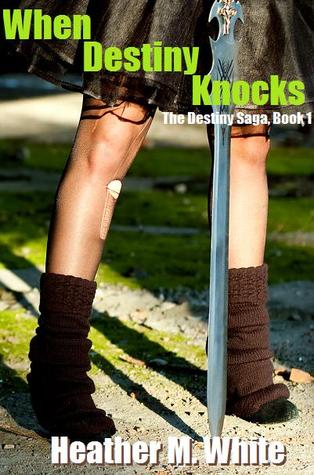
Ana's Rating
Readers Rating
16 year old Karlie has had a pretty normal life… But when her Mom dies she is forced to move over 1,000 miles away to live with her Dad. That’s when things start getting weird.
She can’t explain the earthquakes that nobody else feels, or why she no longer sleeps. But most of all she doesn’t know why she trusts Shane so much, even though his Dad wants her dead.
Suddenly, Karlie’s normal life is turned upside down and she enters a world she never dreamed could really exist.
I’m not entirely sure how to begin this review. Why don’t I start by stating my first thought after reading When Destiny Knocks? That thought is: this is a really bad book. This is the worst book that I’ve read in a long time. This is possibly the worst book that I’ve read since Miss Peregrine’s Home for Peculiar Children. And at least that one had pictures.
When Destiny Knocks wasn’t awful because of the crappy plot, the shallow characters, or even the spray tan romance—although these things did help. No, it was awful largely because of the terrible editing. (This is the part where you say: what editing?)
Classic mistakes, such as confusing ‘should have’ with ‘should of’ or ‘staring’ with ‘starring’, I can take. The painfully evident lack of contractions, which makes characters sound robotic and staged, I can take. Dialogue coming from a variety of characters mashed into the same paragraph, I can take. I take these with difficulty, but I can take them.
However, when it gets to such a point that our narrator goes from the present tense, to the past tense, and back to the present tense in the same sentence, I refuse to sit and take it. Did Miss White honestly not have anyone proofread her novel? A middle school student could have prevented a lot of the mistakes that she made.
Actually, a middle school student could have also come up with When Destiny Knocks’s plot. Instantaneous romance aside, I knew I was in for it when characters were chained to walls at the hands of the antagonist and happily offered to kill family members without hesitation—all of this in the name of love, of course. If I had to describe this plot in one word, that word would definitely be ‘juvenile’.
Another huge issue that I have with this novel is the world building. When you write a paranormal romance, you can’t just get caught up in the cheesy romance and forget the whole paranormal bit. You have to realize that readers are not going to be satisfied unless they know the basic why’s and how’s behind the existence of your supernatural phenomena. But we aren’t given any information when it comes to Karlie’s protectors or who sent them, why she’s the ‘Chosen One’, or even the extent of her powers. Every aspect of When Destiny Knock’s world building seems unplanned and developed solely for convenience.
When Destiny Knocks’s characters are also terribly shallow. The supporting cast consists entirely of flat clichés; our bad guy is apparently soulless—for some reason, this makes him wholly predictable—and Karlie, our protagonist, has two things going for her: her cryptic super powers and her pity card (her mother died and it’s unfair that she can’t be normal, so she has the right to whine 24/7).
With all of these attractive qualities it’s no wonder that not one, but two characters fell head over heels in love with Karlie. When she saw Shane for the first time she felt drawn to him, as though through some magnetic force. She couldn’t keep him out of her head and wanted to find out more about him despite her friends’ warnings. After a few weeks of attending the same school, I had thought that Karlie and Shane were a sealed deal—but then Karlie met Alex, and they hit off as well. Honestly, what does a girl do with two gorgeous guys like that? Well, if you’re a reader of When Destiny Knocks, you say: “fake.”
As much fun as it is to write snarky reviews, I can’t get through this without highlighting When Destiny Knocks’ fine points (however limited these are). I read this novel in one sitting, so I can safely say that the action was fast-paced and there were very few periods where this pacing lagged. Moreover, the cliffhanger ending was gripping, unpredictable and well done.
When Destiny Knocks deserves 1/5 stars. The editing was non-existent; the plot was juvenile; the characters were shallow; the romance was artificial. You might enjoy this one if you have a predilection for cliffhangers or fast reads, but I personally did not in the slightest.
I’ll keep you posted,
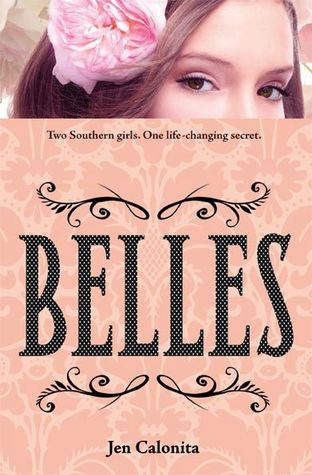
Ana's Rating
Readers Rating
Raised in a run-down house on the supposed wrong side of the tracks in North Carolina, Isabelle “Izzie” Scott loves her less-than-charmed life – she and her friends work at the boardwalk and on the beach, her neighbors look out for her, and a cute surfer-boy comes around every day to teach her some board tricks. But when the grandmother she lives with needs to move into a nursing home, a social worker places Izzie with a politically prominent long-lost uncle and his preppy, privileged family, taking her away from everything she’s every known.
Unfortunately, inserting Izzie into the glamorous lifestyle of Emerald Cove isn’t going as seamlessly as everyone hoped. Her cousin Mirabelle Monroe is having a hard time integrating Izzie into her school-ruling flock of social butterflies, and, in addition to dealing with all the rumors and backstabbing that lurk beneath their classmates’ Southern charm, a secret is unfolding that will change Izzie’s and Mira’s lives forever.
If you are detecting a theme within my most recent reviews, you are not alone. Drama-infused and fluffy contemporaries—or, as I like to call them, beach reads— seem to be all I’m reading this summer. Maybe I need a break from all the paranormal and dystopian books that I’ve been reading, or maybe I just want something that’s easy to understand, but either way I am glad I picked up Belles.
The thing that you need to know before digging into this one (which I suggest you do) is that it’s cliché. Belles is more of a medley of borrowed plotlines—from the overused rags to riches to the high school mean girl picking on the new kid—than anything else. Nevertheless, this quality enhanced Calonita’s novel instead of detracting from it, highlighting Belles’s s fluffiness and Southern twang. I’m actually glad that Calonita opted to go the clichéd route instead of striving to be unique, because retelling old stories is clearly one of her skills.
Belle’s world building is also exceptionally well done. From Emerald Cove’s lavish prep to school Harborside’s rundown community centre, I almost felt like I was in North Carolina. (Which I am, but that’s beyond the point.) Harborside was one of my favourite parts of Belles; the sense of community was amazing and the whimsical boardwalk was so much fun. I probably enjoyed the scenes set in Scoops (the town’s ice cream shop) a lot more than I should have, but can I help it if Belles is well written?
Well written may be an understatement when it comes to this novel. I really felt Mira’s inner conflict; Izzie’s battles became my own. The scenes involving Izzie’s Grams, who has Alzheimer’s, were so evocative that I teared up on more than one occasion. Make of this what you will, but you can’t argue the fact that Jen Calonita can write.
Izzie is best described by her favourite proverb: “No guts, no glory”. She grew up in the bad part of town and has been forced to fend for herself and her grandmother for a long time, and has become one seriously tough cookie as a result. However, if you ask her, Harborside isn’t bad at all— just misunderstood. She is the incarnate of many ideals, including a strong sense of family and loyalty to her friends. My only issue with Izzie’s character is that she sometimes felt like a cross between a robot and an inspirational poster, what with her many I’m-a-strong-person-and-I’m-not-going-to-let-them-break-me statements.
Mira, on the other hand, is best described by the word ‘doormat’. She has been Savannah Ingram’s BFF for a long time, and has therefore been graced by popularity’s many benefits. To most people, Mira has it all: the quarterback boyfriend, the rich and important parents, the high school It Girl’s favour. But to Izzie, Mira is a gutless Savannah clone. And Mira just may be beginning to agree with her.
You may or may not have noticed that our characters are quite mature. This is very true, especially given their age: 15 years old. 15 years old. I frequent a high school and I know how 15-year-olds act—this is definitely not it. So if you have any misgivings about reading Belles due to Izzie and Mira’s age, do not fear—Jen Calonita may be a great author, but she clearly has no idea what she’s talking about when it comes to associating age to behaviour.
At 4.4/5 stars, Belles is a fun read—probably the best it ever could have been given its clichéd nature. It could probably have used a little more humour, but I’m not complaining.
I’ll keep you posted,

![[Twitter]](http://www.whatyareading.com/wp-content/plugins/bookmarkify/twitter.png)


